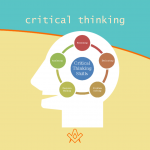How the Core Values of Freemasonry; Brotherly Love, Relief and Truth Can Be Applied to Improve Productivity for Entrepreneurs
Freemasonry is a fraternity centred around the values of brotherly love, relief, and truth. While these values are traditionally applied within the context of the fraternity, they can also be applied to the world of entrepreneurship in order to improve productivity.
One way in which the value of brotherly love can be applied to entrepreneurship is through the concept of teamwork and collaboration. When members of a team are able to work together in a spirit of brotherly love and support, they are often more productive and efficient.
This can be particularly important for entrepreneurs, who often rely on their team to help bring their vision to life. By fostering a sense of camaraderie and mutual respect within the team, an entrepreneur can create a positive and productive work environment.
The value of relief, or charitable giving, can also be applied to entrepreneurship in order to improve productivity. When an entrepreneur is able to give back to their community or support causes they believe in, they may find that they are more motivated and inspired in their work.
Additionally, charitable giving can have a ripple effect, as it can lead to a sense of goodwill and positive recognition for the business. This, in turn, can lead to increased customer loyalty and a boost in productivity.
Finally, the value of truth can be applied to entrepreneurship by ensuring that communication within the team is clear and honest.
When team members are able to speak openly and honestly with one another, it can lead to more efficient problem-solving and decision-making. It can also help to foster trust and respect within the team, which can improve overall morale and productivity.
In conclusion, these core values of Freemasonry can be applied to entrepreneurship in order to improve productivity. By fostering teamwork and collaboration, giving back to the community, and promoting honest and open communication, an entrepreneur can create a positive and productive work environment that is conducive to success.
Why productivity for entrepreneurs is important
Productivity is a critical aspect of entrepreneurship, as it directly affects the success and growth of a business. When entrepreneurs are able to work efficiently and effectively, they are able to accomplish more in less time, which can lead to increased profits and a competitive advantage in the market.
There are many factors that can impact an entrepreneur’s productivity, including time management, organization, motivation, and the ability to eliminate distractions.
By adopting strategies and tools that help to optimize these factors, entrepreneurs can significantly increase their productivity and set themselves up for long-term success.
One of the biggest challenges for entrepreneurs is managing their time effectively. With so many competing priorities and tasks to juggle, it can be easy to get overwhelmed and lose sight of what is most important.
To overcome this challenge, it is essential to prioritize tasks, set clear goals, and develop a system for tracking progress. This could involve using a tool like Trello or Asana to organize and prioritize tasks, or implementing the Pomodoro technique to break work into focused blocks of time.
In addition to time management, organization is another key factor in productivity. When an entrepreneur’s workspace and systems are cluttered and disorganized, it can be difficult to find what they need and stay focused on their work.
By taking the time to declutter and set up an efficient system for organizing tasks and information, entrepreneurs can save time and reduce stress in the long run.
Motivation is another important factor that can impact an entrepreneur’s productivity. When entrepreneurs are passionate about their work and have a clear sense of purpose, they are more likely to stay motivated and focused.
It can be helpful to surround oneself with like-minded people who share similar goals and values, as this can help to keep motivation levels high. Setting small, achievable goals and celebrating successes along the way can also help to keep motivation levels high.
Finally, the ability to eliminate distractions is crucial for productivity. With the proliferation of technology, it can be easy to get pulled in different directions by notifications, emails, and social media.
By turning off notifications, finding a quiet workspace, and setting boundaries around when and how work is done, entrepreneurs can significantly improve their focus and productivity.
In conclusion, productivity is a critical aspect of entrepreneurship that can have a major impact on the success of a business.
By adopting strategies and tools that help to optimize time management, organization, motivation, and the ability to eliminate distractions, entrepreneurs can significantly increase their productivity and set themselves up for long-term success.

Brotherly Love
Team building is a critical aspect for entrepreneurs
Team building is a critical aspect of productivity for entrepreneurs, as it helps to foster a sense of unity and cooperation within a team.
When team members are able to work well together and support one another, they are able to accomplish more and achieve greater results.
There are many benefits to team building for entrepreneurs. One of the most important is improved communication.
When team members are able to effectively communicate with one another, they are able to collaborate more effectively and make better decisions. This can lead to increased efficiency and productivity, as there is less time wasted on miscommunications or misunderstandings.
Another benefit of team building is the development of trust and camaraderie among team members. When team members trust one another and feel a sense of belonging, they are more likely to feel motivated and engaged in their work.
This can lead to increased productivity, as team members are more likely to put in extra effort when they feel connected to their team and their work.
Team building can also help to improve problem-solving and decision-making skills within a team. By participating in activities and exercises that challenge team members to think critically and creatively, they can develop new ways of tackling problems and making decisions.
This can lead to increased productivity, as team members are able to more effectively tackle challenges and find solutions.
In addition, team building can help to improve team dynamics and reduce conflicts within a team. By providing an opportunity for team members to get to know one another and build relationships, team building can help to create a more positive and harmonious work environment.
This can lead to increased productivity, as team members are more likely to work well together and support one another when there are fewer conflicts or tension within the team.
Overall, team building is a critical aspect of productivity for entrepreneurs, as it helps to foster a sense of unity, trust, and cooperation within a team.
By investing in team building activities and exercises, entrepreneurs can significantly improve communication, problem-solving, and team dynamics within their team, leading to increased productivity and success.
Collaborations are critical for entrepreneurs
Collaborations are a critical aspect of productivity for entrepreneurs, as they allow individuals or organizations to come together to achieve a common goal.
By working together and pooling their resources and expertise, collaborators are able to achieve more than they could on their own, leading to increased productivity and success.
There are many benefits to collaborations for entrepreneurs. One of the most important is the ability to leverage the skills and expertise of others.
When entrepreneurs collaborate with individuals or organizations that have complementary skills and expertise, they are able to access new knowledge and resources that can help them to achieve their goals more effectively.
This can lead to increased productivity, as entrepreneurs are able to tap into the skills and expertise of others to complete tasks more efficiently and effectively.
Another benefit of collaborations is the ability to access new markets and customers. By working with other individuals or organizations, entrepreneurs are able to reach new audiences and expand their customer base.
This can lead to increased sales and revenue, and ultimately, increased productivity.
Collaborations can also help entrepreneurs to reduce costs and risks. By sharing resources and splitting costs with collaborators, entrepreneurs are able to reduce their expenses and mitigate risk.
This can lead to increased efficiency and productivity, as entrepreneurs are able to operate more effectively with fewer resources.
In addition, collaborations can help entrepreneurs to stay competitive in their market. By working with other individuals or organizations, entrepreneurs are able to access new technologies, products, and services that can help them to stay ahead of the competition.
This can lead to increased productivity, as entrepreneurs are able to offer their customers the latest and most innovative products and services.
Overall, collaborations are a critical aspect of productivity for entrepreneurs, as they allow individuals or organizations to come together to achieve a common goal.
By leveraging the skills and expertise of others, accessing new markets and customers, reducing costs and risks, and staying competitive in their market, entrepreneurs can significantly increase their productivity and success.

Relief
Helping other people to solve their problems is a critical business strategy for entrepreneurs
Helping other people to solve their problems is a critical aspect of business strategy for entrepreneurs, as it allows them to create value and build relationships with their customers.
When entrepreneurs are able to identify the problems that their customers are facing and provide solutions, they are able to create value for their customers and differentiate themselves from their competitors.
This can lead to increased customer loyalty, sales, and revenue, and ultimately, increased business success.
There are many benefits to helping other people to solve their problems as a business strategy for entrepreneurs.
One of the most important is the ability to create customer value. By identifying the problems that their customers are facing and providing solutions, entrepreneurs are able to create value for their customers and differentiate themselves from their competitors.
This can lead to increased customer loyalty, as customers are more likely to continue doing business with companies that provide value and solve their problems.
Another benefit of this business strategy is the ability to build relationships with customers. When entrepreneurs are able to help their customers solve their problems, they are able to establish trust and credibility with their customers.
This can lead to increased customer loyalty and retention, as customers are more likely to do business with companies that they trust and feel a connection with.
In addition, helping other people to solve their problems can help entrepreneurs to stay competitive in their market.
By continuously seeking out new ways to solve their customers’ problems and improve their products and services, entrepreneurs are able to stay ahead of the competition and offer their customers the best possible solutions.
This can lead to increased sales and revenue, as customers are more likely to choose companies that offer the most value and solve their problems effectively.
Finally, helping other people to solve their problems can also help entrepreneurs to generate new ideas and innovations.
By continuously seeking out new ways to solve their customers’ problems, entrepreneurs are able to uncover new opportunities and ideas for their business. This can lead to increased productivity and success, as entrepreneurs are able to continually improve and grow their business.
Overall, helping other people to solve their problems is a critical aspect of business strategy for entrepreneurs, as it allows them to create value and build relationships with their customers.
By creating customer value, building relationships, staying competitive, and generating new ideas, entrepreneurs can significantly increase their business success.
Mentoring as an important strategy for entrepreneurs
Mentoring other people is a critical aspect of business strategy for entrepreneurs, as it allows them to share their knowledge and experience with others, while also gaining valuable insights and perspectives.
By mentoring others, entrepreneurs are able to not only give back to their community, but also improve their own skills and knowledge. This can lead to increased productivity and success for both the mentor and the mentee.
There are many benefits to mentoring other people as a business strategy for entrepreneurs. One of the most important is the ability to share knowledge and experience. As entrepreneurs gain more experience in their industry, they accumulate a wealth of knowledge and insights that can be valuable to others.
By mentoring others, entrepreneurs are able to share this knowledge and help others to grow and develop their own skills and expertise. This can lead to increased productivity for both the mentor and the mentee, as both parties are able to learn and grow from the experience.
Another benefit of mentoring is the ability to gain new perspectives and insights. When entrepreneurs mentor others, they are exposed to new ideas and viewpoints that can challenge their own assumptions and beliefs.
This can lead to increased creativity and innovation, as entrepreneurs are able to see things from a different perspective and come up with new solutions to problems.
In addition, mentoring can help entrepreneurs to build relationships and networks within their industry.
By working with others and sharing their knowledge and experience, entrepreneurs are able to build relationships with others in their field.
This can lead to increased collaboration and opportunities for both the mentor and the mentee, as they are able to leverage their networks and connections to achieve their goals.
Finally, mentoring can also help entrepreneurs to give back to their community and make a positive impact. By sharing their knowledge and experience with others, entrepreneurs are able to contribute to the development and growth of their industry and community.
This can lead to a sense of fulfilment and purpose, which can be a powerful motivator for entrepreneurs.
Overall, mentoring other people is a critical aspect of business strategy for entrepreneurs, as it allows them to share their knowledge and experience with others, while also gaining valuable insights and perspectives.
By sharing knowledge and gaining new insights, building relationships and networks, and giving back to their community, entrepreneurs can significantly increase their productivity and success.

Truth
Constructing a logical argument is a critical aspect for entrepreneurs
Constructing logical arguments is a critical aspect of business strategy for entrepreneurs, as it allows them to persuade others and make their case effectively.
Whether they are trying to sell a product or service, convince investors to fund their business, or advocate for a particular cause, entrepreneurs need to be able to construct logical arguments in order to effectively communicate their message and achieve their goals.
There are many benefits to constructing logical arguments as a business strategy for entrepreneurs. One of the most important is the ability to persuade others.
When entrepreneurs are able to present their case in a clear and logical way, they are more likely to be able to convince others to see things their way.
This can be especially important when trying to sell a product or service, as entrepreneurs need to be able to persuade potential customers to buy from them.
Another benefit of constructing logical arguments is the ability to clearly communicate ideas and concepts. When entrepreneurs are able to present their ideas in a clear and logical way, it is easier for others to understand and grasp their message.
This can be especially important when trying to communicate complex ideas or concepts, as it helps to ensure that the message is understood by all.
In addition, constructing logical arguments can help entrepreneurs to defend their position and withstand challenges.
When entrepreneurs are able to present their case in a logical and well-reasoned way, they are better equipped to defend their position against challenges and objections.
This can be especially important when trying to convince investors or other stakeholders to support their business, as they need to be able to withstand challenges and objections.
Finally, constructing logical arguments can also help entrepreneurs to think critically and creatively. By forcing entrepreneurs to consider their ideas and arguments from multiple angles and perspectives, constructing logical arguments can help them to think more critically and creatively about their business and its strategies.
This can lead to increased productivity and success, as entrepreneurs are able to come up with more innovative and effective solutions to problems.
Overall, constructing logical arguments is a critical aspect of business strategy for entrepreneurs, as it allows them to persuade others and make their case effectively.
By persuading others, clearly communicating ideas, defending their position, and thinking critically and creatively, entrepreneurs can significantly increase their productivity and success.
Learning to spot logical fallacies is a skill set for entrepreneurs
Learning to spot logical fallacies is a critical aspect of productivity for entrepreneurs, as it helps them to identify and avoid faulty reasoning and arguments.
By learning to spot logical fallacies, entrepreneurs are able to more effectively evaluate the information and arguments that they encounter, and make better decisions as a result.
This can lead to increased productivity and success, as entrepreneurs are able to more effectively navigate the complex and often uncertain world of business.
There are many benefits to learning to spot logical fallacies as a productivity tool for entrepreneurs. One of the most important is the ability to critically evaluate information and arguments.
When entrepreneurs are able to identify logical fallacies, they are better equipped to critically evaluate the information and arguments that they encounter. This can help them to avoid being swayed by faulty reasoning or misinformation, and make more informed and rational decisions.
Another benefit of learning to spot logical fallacies is the ability to communicate more effectively. By understanding the common pitfalls of faulty reasoning, entrepreneurs are able to avoid using logical fallacies in their own arguments and communicate more effectively.
This can be especially important when trying to persuade others or sell a product or service, as entrepreneurs need to be able to present their case in a clear and logical way.
In addition, learning to spot logical fallacies can help entrepreneurs to improve their decision-making skills.
By being aware of the common pitfalls of faulty reasoning, entrepreneurs are better able to consider all sides of an issue and make more balanced and rational decisions.
This can lead to increased productivity, as entrepreneurs are able to make better decisions in less time.
Finally, learning to spot logical fallacies can also help entrepreneurs to avoid being influenced by others’ biases and prejudices.
By understanding the common pitfalls of faulty reasoning, entrepreneurs are better able to recognize when others are attempting to persuade them based on emotional appeals or biased viewpoints, rather than on logical arguments.
This can help them to make more objective and unbiased decisions, leading to increased productivity and success.
Overall, learning to spot logical fallacies is a critical aspect of productivity for entrepreneurs, as it helps them to identify and avoid faulty reasoning and arguments.
By critically evaluating information and arguments, communicating more effectively, improving decision-making skills, and avoiding being influenced by others’ biases and prejudices, entrepreneurs can significantly increase their productivity and success.
Why short term views are less effective to long term goals
As an entrepreneur, it can be tempting to focus on short term goals and targets in order to achieve quick wins and satisfy immediate needs.
However, adopting a long term view is often more effective in terms of productivity and overall success.
One reason why short term thinking can be detrimental to productivity is that it can lead to a lack of strategic planning and foresight.
When an entrepreneur is only focused on meeting immediate goals, they may neglect to consider the long term consequences of their actions and how they fit into the larger goals of the business. This can lead to a lack of cohesion and direction, resulting in wasted resources and missed opportunities.
In contrast, taking a long term view allows an entrepreneur to consider the bigger picture and make informed decisions that will benefit the business in the long run.
This means taking the time to research and analyse different options, rather than simply going with the first solution that presents itself.
It also involves setting clear, long term goals and working towards them in a systematic and deliberate manner. This can help to ensure that the business is headed in the right direction and that resources are being used effectively.
Another advantage of a long term view is that it can help an entrepreneur to weather the ups and downs of the business world.
Short term thinking can lead to a focus on quick fixes and quick wins, which may not be sustainable over the long haul. When challenges arise, an entrepreneur who has a long term perspective is more likely to be able to devise a plan to overcome them and come out ahead in the long run.
In addition, adopting a long term view can help an entrepreneur to build strong relationships with customers, employees, and other stakeholders.
When an entrepreneur is focused on meeting short term goals at all costs, they may be more likely to cut corners or make decisions that are not in the best interests of these relationships.
This can lead to a lack of trust and loyalty, which can have negative consequences for the business.
On the other hand, an entrepreneur who takes a long term view is more likely to prioritize the needs of these relationships, which can lead to more loyal customers and employees, as well as stronger partnerships.
Finally, a long term view can be especially important for entrepreneurs who are looking to build a successful and enduring business.
Short term thinking can lead to a focus on quick profits and rapid growth, which may not be sustainable in the long run.
In contrast, an entrepreneur who takes a long term view is more likely to focus on building a solid foundation for the business and making decisions that will benefit it in the long run. This can help to ensure the longevity and success of the business, even in the face of challenges and setbacks.
In conclusion, while it can be tempting to focus on short term goals as an entrepreneur, adopting a long term view is often more effective in terms of productivity and overall success.
By considering the bigger picture, making informed decisions, and prioritizing long term goals and relationships, an entrepreneur can set the stage for a successful and enduring business.

5 software apps that improve Productivity for entrepreneurs
Trello is a project management tool that helps entrepreneurs visualize and organize their tasks and projects in an interactive, Kanban-style board.
Asana is a team collaboration and project management platform that helps entrepreneurs track their tasks, communicate with their team, and stay organized.
Hootsuite is a social media management tool that allows entrepreneurs to schedule posts, track their performance, and analyse their social media metrics in one place.
Grammarly is a writing and editing tool that helps entrepreneurs improve their written communication and make their work more professional and polished.
RescueTime is a time tracking and productivity analysis tool that helps entrepreneurs understand how they are spending their time and identify areas where they can improve their productivity.
Recent Articles: skills
 7 Soft Skills Taught In Freemasonry Discover how Freemasonry nurtures seven irreplaceable soft skills—collaboration; Communication, Teamwork, Empathy, Flexibility, Conflict Resolution, Active Listening, and Trustworthiness. Explore how these essential human attributes, grounded in emotional intelligence and ethical judgment, remain beyond the reach of AI. |
 Freemasonry and Reskilling in the age of AI The article explores the challenges and strategies organizations face in reskilling their workforce in the era of automation and artificial intelligence. It highlights the need for companies to view reskilling as a strategic imperative and involve leaders and managers in the process. The article also emphasizes the importance of change management, designing programs from the employee's perspective, and partnering with external entities. |
 Ten Central Commandments or Principles of Freemasonry Embrace the wisdom of Freemasonry's teachings in your personal journey towards self-improvement and stronger leadership. By upholding virtues of integrity, compassion, and respect, and uniting these with a commitment to continuous learning and social responsibility, inspire change. Transform yourself and the world around you, fostering a legacy of positivity and enlightenment. |
 Freemasonry: A Guide to Fatherhood In the sacred halls of Freemasonry, fathers discover a hidden power to transform their parenting journey. With its timeless values, supportive community, and life-enriching teachings, Freemasonry empowers fathers to provide a moral compass, foster self-improvement, build stronger connections, and embrace the confidence and wisdom needed to navigate the complex realm of fatherhood. |
 Courage as a core value in Freemasonry Freemasonry, a revered fraternity, prioritizes virtues like honesty and charity. However, courage is foundational. From Plato to Maya Angelou, courage is vital for other virtues. Freemasonry's teachings, referencing events like Gettysburg, emphasize diverse courage forms. In today's divided world, Masons promote and exemplify courage, understanding its importance in facing challenges. |
 How Freemasonry Cultivates Ideal Entrepreneurial Traits Freemasonry's cryptic rituals hold timeless lessons for building entrepreneurial greatness. Through tests of passion, vision and skill, Masonic teachings forge ideal traits like grit, creativity and alliance-making needed to seize opportunity and elevate enterprises. The right commitment unlocks code for entrepreneurial success. |
 What you see praiseworthy in others "What you see praiseworthy in others, carefully imitate, and what in them may appear defective, you will in yourself amend". This passage of Masonic ritual (Taylors Working, Address to the w |
 How to Learn Ritual with a Learning Disorder So what do you do when faced with that little blue book? Most Masons when first looking at the ritual book can understandably be fazed – the tiny print, the missing words, the questions and answers! Learning ritual can be a challenging task for anyone, especially individuals with learning disorders, but it is not impossible. Here are some tips to help make the process easier. |
 A "mind palace", also known as a "memory palace", is a technique for memorizing and recalling information. How would your life change if you could remember anything and everything? Discover the 'Mind Palace' and all will be revealed. |
 What is leadership and who does freemasonry help develop those skills needed to be a better leader |
 A story of the 'Ruffians' – those individuals whose paths cross ours, who feel entitled to seize and consume the property of others that they have not earned. A lesson to build character to be a better citizen of the world. |
 Now we are back in the Lodge room once again, maybe it is time to review how we learn and deliver ritual and look at different ways of improving that process. |
 Making an advancement in Masonic Knowledge can become far easier when you 'learn how to learn'. |
 Learn how to practise Masonic meditation in a busy world with all its care and employments |
 Struggling to learn your ritual? Become a 5-Minute Ritualist with the aid of a book of the same name. |
 Day in the life of a Freemason As we start a new year, maybe start it with a new habit? |
 Ten Basic Rules For Better Living Ten Basic Rules For Better Living by Manly P Hall |
 How can we use masonic leadership skills to avoid confrontational situations? |
 How the Trivium is applied to Critical Thinking - {who, what, where, when} - {how} - {why} |
 The Seven Liberal Arts - why 'seven', why 'liberal', why 'arts'? |
 How to improve your public speaking skill with 6 techniques |
 Do you need to speak in public, or present Masonic ritual without notes ? |
 What are logical Fallacies and how to spot them |
 Share one easy tip to learn masonic ritual; Some good tips from Facebook followers |
 How can we use the 7 secrets of the greatest speakers in history |
 What is a critical thinker and what are their characteristics? |
 Share one personal skill Freemasonry helped you to improve? How can we make practical use of the lessons taught in Masonic writings? |
 An introduction to the art of public speaking - speak with confidence |
 Seven Liberal Arts and Sciences What do you know about Seven Liberal Arts and Sciences |
 Three Words That Will Change Your Life This article discuss a common situation found in many lodges - a difficulty in holding a conversation with a stranger. |
 Al - Khwarizmi live c750 - c820 is credited as being the father of Algebra, being asked what is Man, give his answer in an algebraic expression |
masonic knowledge
to be a better citizen of the world
share the square with two brothers

click image to open email app on mobile device








